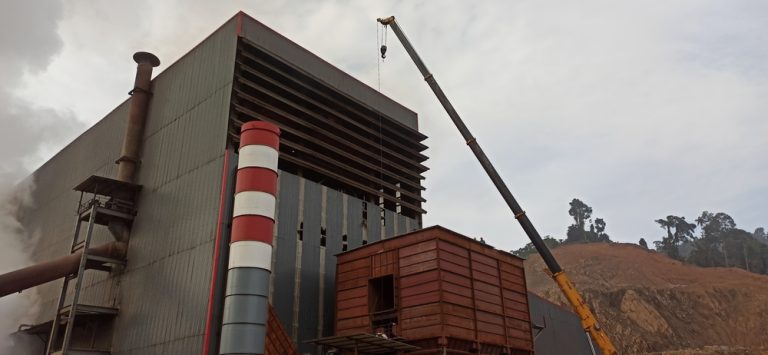Jakarta—The national nickel industry is taking proactive steps by preparing sustainable production standards, according to the Indonesian Nickel Miners Association (APNI) in an official statement on Tuesday, 20 May. The move is expected to address criticism of industry practices and strengthen downstream policies that have become a pillar of Indonesia’s economic transformation.
“We are designing an ESG (Environmental, Social, and Governance) standardisation system for the mineral industry. This is important so that there is no more black campaign against nickel as has happened so far,” said APNI Secretary General Meidy Katrin Lengkey.
APNI plans to form a global forum with 30 mineral-producing countries. The forum will be held in Indonesia early next month and aims to formulate a sustainable certification system similar to RSPO in the palm oil sector or SVLK in the timber industry.
“We will make standards like RSPO, ISPO, or SVLK, specifically for the nickel industry and other strategic minerals. We ask the Ministry of Foreign Affairs to help invite all Indonesian Embassies to participate in facilitating producer countries,” Meidy explained.
The industry believes that Indonesia, which currently has 27 critical minerals and 22 strategic minerals, must have its sustainable certification to maintain its position in the global supply chain and avoid negative stigma from other countries.
ESG as a downstream pressure tool
According to Muhammad Toha, Chairman of the Strategic Mineral Studies Division of the Indonesian Mining Experts Association (Perhapi), foreign parties often use the ESG narrative to exert political and economic pressure and hinder downstream mineral policies.
He believes that the major shift in the nickel industry’s landscape since 2015—from raw material exporter to downstream product exporter—is the main trigger for international pressure.
The chairman of Prabowo’s Lingkar Nusantara (LISAN), Hendarsam Marantoko, made a similar criticism. He said the pressure from Western countries on the nickel industry was getting louder and seemed organised. He believes there is a systematic effort to thwart the national downstream agenda.
Hendarsam asserted that downstreaming is a strategic policy that will not be stopped. “This is the path to a sovereign and independent country. International pressure will not make us back down,” he said.
Responding to these dynamics, Hendra Sinadia, Executive Director of the Indonesia Mining Association (IMA), emphasised the importance of law enforcement and incentivising mining companies that comply with ESG principles.
Hendra said negative campaigns generalising the entire mining industry are very detrimental. He cited companies such as Harita Nickel and Vale Indonesia that have implemented international standards but are still affected by destructive perceptions due to the actions of a small number of industry players. (Hartatik)
Banner photo: North Morowali, Indonesia. 26, November-2022: Continuation of Furronickel Smelter Construction, production of ferronickel. (Eklesia_Magelo/shutterstock.com)















